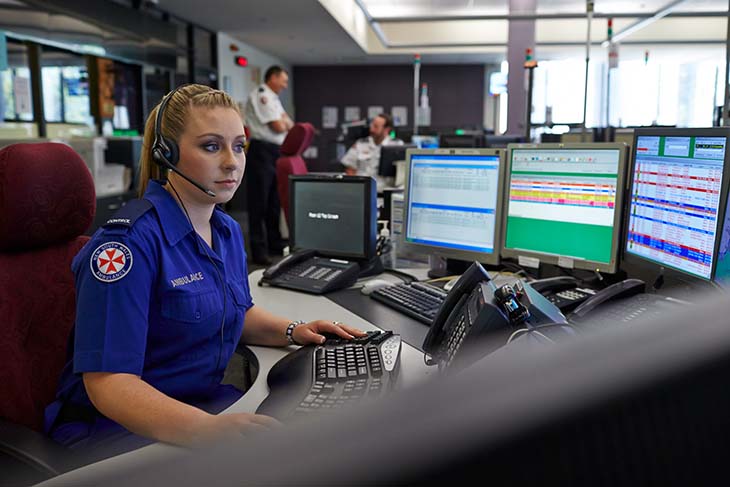Course Details
Your Growth, Our Mission

Course Description
The Training Course Will Highlight ?
- The purpose and major functions of a Control Center
- Information collection, evaluation, display and dissemination
- Co-ordination of resources in an incident and what can go wrong
- Customer, company and all stakeholder liaison
- Control Center Team, Supervisor & Manager roles & responsibilities
- Ten common mistakes made in Control Center
Training Objective
- The purpose and major functions of a Control Center
- Information collection, evaluation, display and dissemination
- Co-ordination of resources in an incident and what can go wrong
- Customer, company and all stakeholder liaison
- Control Center Team, Supervisor & Manager roles & responsibilities
- Ten common mistakes made in Control Center
Target Audience
-
- Attendance on this training course will immediately benefit all Control Center Operators, Dispatchers and their Supervisors. In addition, those managers who have overall responsibility for such operations and communications but have not had sufficient time to devote to the subject. This course is suitable to a wide range of professionals but will greatly benefit:
- Control Center Operators and Supervisors
- Emergency Dispatchers
- Security Personnel and CCTV Operators
- HSE Personnel
- Emergency Response Team members
- Incident Control Point (Forward Control) Team members
Training Methods
This interactive Training will be highly interactive, with opportunities to advance your opinions and ideas and will include;
- Lectures
- Workshop & Work Presentation
- Case Studies and Practical Exercise
- Videos and General Discussions
Daily Agenda
Competency Description: What makes a great Dispatcher and Control Center team member? Control Center people come from a variety of professions. Sometimes they have experience with other emergency response organisations, sometimes they come from a background in customer service or call center work and sometimes they can be new to the control center environment. Whatever their background, they all share these behavioural characteristics
Key behaviours
-
- Demonstrate exceptional IT skills and good local knowledge
- Knowledge of Health & Safety
- An understanding of types of incidents
- Good interpersonal skills
- Good communication and observation skills
- Knowledge of communications, corporate terminology & procedures
Topics to be covered
-
- Consider the role, purpose and many functions of a good Control Centre
- Consider the role and responsibilities of the Emergency Dispatcher
- Control Centre equipment: Communications; IT; CCTV; Alarms; Records
- Consider the full range of potential incidents and calls
- Dealing with those incoming emergency calls and prioritising them
- Obtaining the necessary information from the caller
- Assessing the urgency and deciding on the best course of action
Competency Description: An effective Control Center requires a methodical, structured approach to information gathering, analysis and then rapid dissemination. The CC becomes the focal communications point and part of the command and control system during an incident, if the system or the staff fail - then the company fails.
Key behaviours
-
- Corporate awareness
- Ability to work under pressure
- Good problem-solving skills
- Using the full range of CC equipment
- Demonstrate competence in organisational and administrative skills
- Active listening, observation and questioning skills
Topics to be covered
-
- HSE policies relevant to CC design, monitoring and security equipment
- Active listening techniques
- Techniques to mitigate potential communication difficulties
- CC procedures and command & control during an incident
- The use of Forward or Incident Control Points (ICP)
- Communications with & safety of an Emergency Response Team (ERT)
- Overview of organisation’s risk management, emergency & security plans
- Organisation’s emergency codes, procedures and alarm signals
Competency Description: Based on the type and activity of the Control Center, its purpose and equipment, an emergency services control room operator needs to be fully aware of all the many functions. What can go right and what can go wrong.
Key behaviours
-
- Managing highly charged, potentially emotional situations
- Resolving conflicts to achieve positive outcomes
- Excellent communication skills, both verbal and written
- Working on their own initiative
- Flexibility, responding to changes in situations
- Ability to manage ‘change-over’ and maintain accurate records
- Effective peer relationship skills (team players)
Topics to be covered
-
- Ten most common made errors in a Control Center
- Security equipment checks:
-
- CCTV
- Infra-red sensors
- Movement and acoustic sensors/detectors
- Automatic entry/intruder alarms systems
- Fire and duress alarms
-
- Situations requiring back up and support:
-
- Medical Emergencies
- Major Incidents
- Terrorist incidents
- Multi-agency response and resource management
-
- Conducting efficient ‘change-over’ at shift change, what is involved
- Syndicate exercise
- Avoiding fatigue and stress on the job
- Course review
Accreditation
BTS attendance certificate will be issued to all attendees completing minimum of 80% of the total course duration.
Quick Enquiry
Request Info
Related Courses
Your Growth, Our Mission

